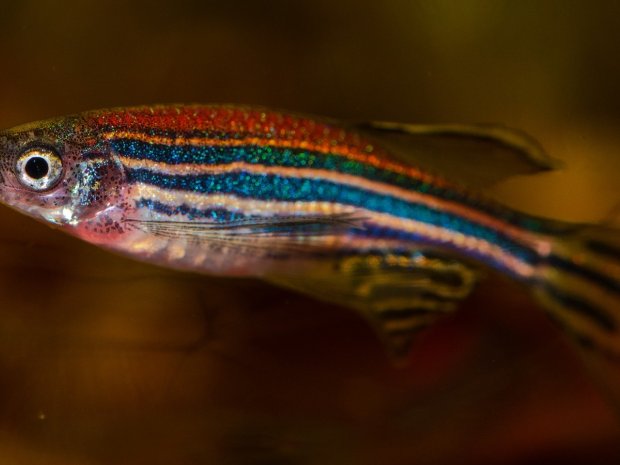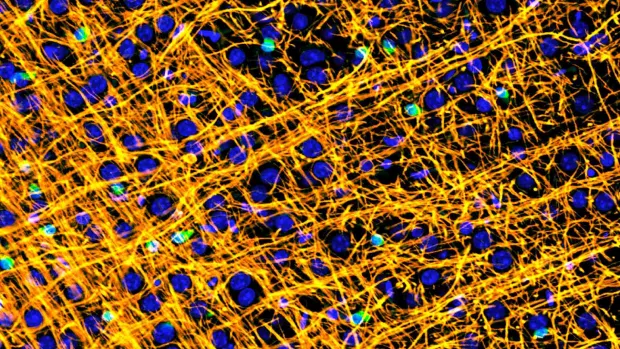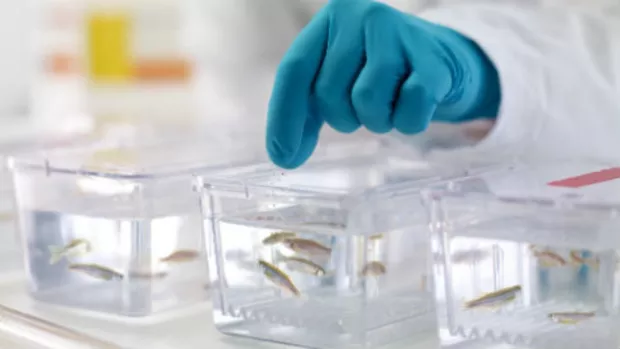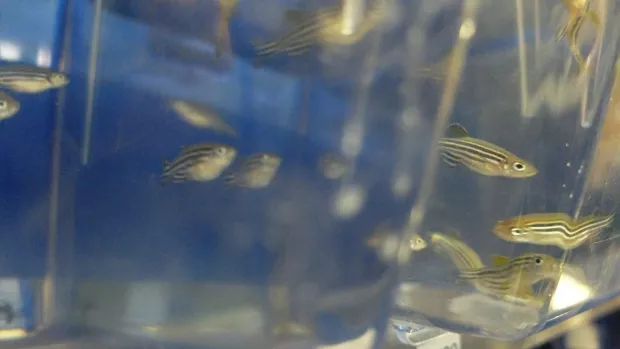
Zebrafish are making a splash
Zebrafish, named for their black and white stripes, are helping us answer some big questions about MS. Dr Carl Tucker, Aquatics Facilities Manager at the University of Edinburgh, tells us about the work he does to look after these tiny fish.
After nine years serving in the British Army, I returned to the UK to do a marine biology degree, followed by a PhD. I went on to set up the first zebrafish facility at the University of Edinburgh. We now have over 3,500 fish tanks, which are home to tens of thousands of zebrafish.
A special little fish
Zebrafish are pretty unique. At five days old, a zebrafish embryo is only 5mm long but is practically a complete fish with all its major organs.
Unlike humans, they can regenerate all their organs - even the heart! But for scientists, the best thing about zebrafish is that the embryos are almost completely transparent. So you see all the processes going on inside their bodies, like myelin repair, which is vital to stopping MS.
Sharing our DNA with fish
It might seem surprising that fish can help us understand human conditions like MS, but we actually share approximately 70% of our DNA with zebrafish.
We can find out a lot of important information just from looking at individual cells in a lab, but we really need to know how all these cells interact with each other. And for that, you need a living organism.
I work closely with Professor David Lyons, a researcher based here at the University of Edinburgh. He’s doing some brilliant research on zebrafish and MS. And our zebrafish are also used to study all sorts of other conditions, like heart disease, various cancers and kidney function, to name a few.
Zebrafish and MS
One pioneering project David is leading is a new drug-testing platform at the MS Society Edinburgh Centre for MS Research. The platform will use robots to screen thousands of potential MS treatments on zebrafish with an MS-like condition, which could help find treatments faster.
He’s also looking at how myelin debris, which is left after an immune attack, is cleared in the brains of zebrafish. By testing the effect of different drugs on the rate of clean-up, David and his team aim to identify potential myelin repair treatments for MS.
Good science needs good animal welfare
We take the welfare of our fish very seriously. In fact, at Edinburgh, there’s an entire department dedicated to the care of research animals.
The UK’s laws around animal research are among the most stringent in the world. Scientists who use animals in their research do a lot of training and are required to get lots of different licenses. The government can do inspections and if a lab is found to be violating the law, it can have very serious consequences and the research can be stopped.
Taking care of our zebrafish
Our zebrafish are fed three times a day with a special balanced diet, and the water quality is constantly monitored to make sure it’s ideal at all times.
Under UK law all experimental procedures must assess the possible harms to an animal. The vast majority of procedures are considered mild - this means the impact on the fish is minimal. If it’s possible that pain may occur, we let the fish swim about in a bath of a liquid containing anaesthetic, which they take in through their gills.
I know some people find it peculiar that fish are used for medical research, but if we want to stop conditions like MS, we need animals to help us understand them. I love my job, because we’re working to help people living with painful and debilitating conditions.



